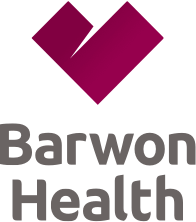Vestibular Rehabilitation
Community rehabilitation is available for people who have experienced a new vestibular condition including:
- Benign paroxysmal positional vertigo (BPPV)
- Vestibular neuronitis or labrynthitis
- Acoustic neuroma removal
- Vestibular migraine
- Ototoxicity
- Trauma
These conditions often have symptoms of dizziness, vertigo and unsteadiness. We work with people to deliver goal-focused and time-limited rehabilitation to reduce/relieve these symptoms.
Rehabilitation appointments are provided within the Community Rehabilitation Centres at Belmont and in North Geelong (McKellar Centre) and can also be provided at the client’s home or in the local community.
The Community Rehabilitation Centre has a purpose built gym, access to specialist rehabilitation equipment and customised clinical treatment spaces. Hydrotherapy is also available to people as part of their physiotherapy program.
Client appointments can be individual or within a group and are based around the person’s goals for recovery.
Cost
There is no out of pocket cost for appointments.
How to refer
A General Practitioner (GP), medical specialist or any health professional can make a referral. Referrals are received by our two services in Belmont and in North Geelong. Clients will be offered the service closest to their home:
For people living closest to Belmont:
Email: [email protected]
Fax: (03) 4215 6839
Post: Belmont Community Rehabilitation Centre
1-17 Reynolds Road, Belmont 3216
PO Box 281, Geelong VIC 3220
Electronic referral: referralNET (Geelong region only)
Phone: 4215 7000
For people living closest to North Geelong:
Email: [email protected]
Fax: (03) 4215 6376
Post: McKellar Community Rehabilitation Centre
45-95 Ballarat Road, North Geelong 3215
PO Box 281, Geelong VIC 3220
Electronic referral: referralNET (Geelong region only).
Phone: 4215 5301
In your referral, please include a summary of the person’s medical diagnosis, current symptoms and issues, goals for rehabilitation and any relevant risks.
All referrals are triaged and if not suitable for community rehabilitation, the referral may be forwarded on to a more appropriate service or feedback provided to the referrer.
Last Modified: Tuesday, 12 September 2023
